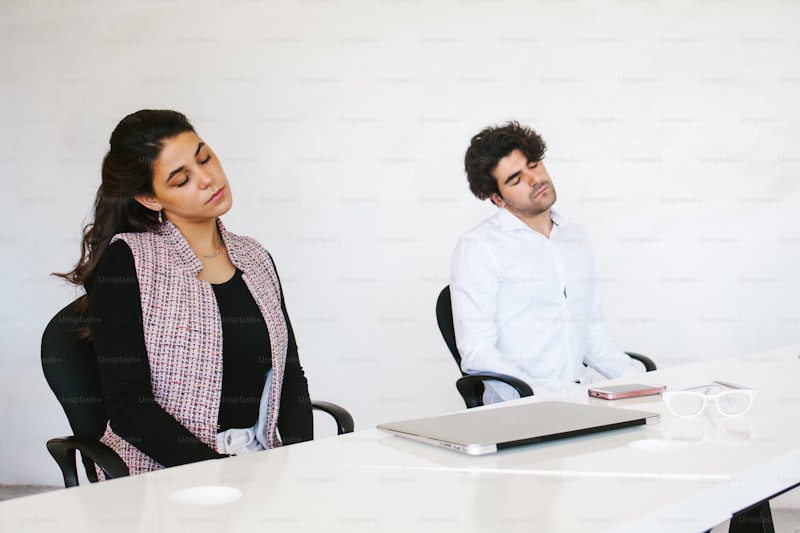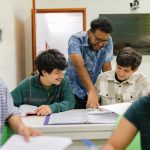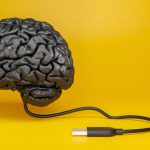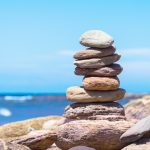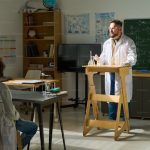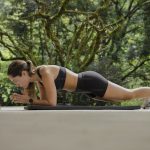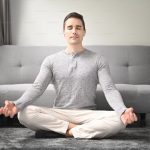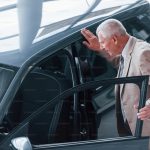Experienced journalist Sidonie Gaucher was one of the very first YogaLondon 200-hour graduates, who has decided to celebrate her ten-year graduation anniversary by taking the 500-hour course. Her love of yoga nidra and the philosophy of yoga has helped guide her through extreme hardship, with severe eye problems, and then sudden deafness, and has allowed her to reconnect with the essence of who she is.
1. What brought you to the 200-hour yoga teacher training course ten years ago?
I was one of the very first YogaLondon graduates – I was there at the very beginning, back when Rebecca [the co-founder of YL] was teaching the classes herself. I decided to attend for two reasons.
The first was that I had always loved guided meditations but I had no idea what I was doing, so I decided to go to yoga teacher training to learn. I remember the first yoga nidra recording that Rebecca played us – it was love at first ‘hear’.
The other reason was more practical. In my late twenties I had suffered from a retinal detachment [a serious eye condition, often linked to short-sightedness] and I needed help to heal it. The yoga teacher training, followed by Francesca’s yoga nidra CPD helped to deepen my practice, and it also helped me to heal.
2. Did you teach yoga after graduating?
Yes. As well as being a full-time journalist when I graduated, I found a very niche job teaching yoga to tango dancers.
It was a very beautiful job, and at the time my teaching was focused on postures for dancing.
I still enjoy the mix of yoga and tango, and for the time being I teach privately in French, English and Spanish.
3. What happened with your teaching during lockdown?
I tried teaching online, but I have profound and permanent deafness, which makes online teaching hard.
Being deaf meant that it was all too chaotic for me, both the giving and receiving of classes, but thanks to very smart hearing aids, I can now make it work better.
4. Do you know what caused the deafness?
My story is very linked to deafness and disability and I think it’s interesting to put it to the foreground. I would say now that I identify as deaf, as there are so many different ways to define deafness.
In my late thirties I became completely deaf. I also have tinnitus all the time in both ears – it’s a bit like having Mariah Carey in one ear and Celine Dion – at their highest pitch – in the other.
At the beginning there were several theories. They thought it might have been caused by emotional distress or accumulated stress. They also thought it might have been pregnancy hormones affecting my hearing canal.
It took me and the NHS one year to realise that my deafness was permanent and profound.
6. And how has yoga helped process this sudden disability?
I thought I’d have an advantage with the fifth limb of yoga – Pratyahara, literally withdrawal of the senses, being both poor-sighted and deaf. But no, it isn’t just that you have less senses to withdraw from, it’s the ability to choose not to be distracted by whatever your sensory input is.
Pratyahara helps with my tinnitus as it gives me the ability to remove the distraction of the noise. Whether the sound is inside or outside you can choose a sense of equanimity.
That’s how yoga beyond asanas helped me go through these challenges.
7. What effect did the deafness have on your physical practice?
It had a huge impact. A side-effect of my deafness was that I lost my sense of balance, so from being able to do crazy things I was only able to do seated poses. From Warrior 1 to Warrior None. It was super depressing.
8. And on the rest of your life?
The effect was huge. I was made redundant from my job as Chief Editor of a magazine. I wanted to bounce back from this but then the pandemic hit and I was unable to use Zoom, couldn’t lip-read with people wearing masks and I was unable to even walk in the street as I found the noise so appalling.
Quite ironically, since becoming deaf, I’ve been working in a hearing-related environment, such as being the correspondent for French radio.
Bringing up two young children with sudden deafness was the closest experience I’ve had to hell. Bless them, they couldn’t understand at the beginning that it wasn’t that I wasn’t listening, but that I couldn’t hear. Also the noise of them crying was like torture to me.
Eventually they understood that they had to tap me first and then stand in front of me so I could lipread. My eldest is now eight-years-old and he’s not too keen on signing, but my youngest loves signing and is already really into it.
9. How has yoga philosophy helped you to come to terms with this huge change to your life?
My deafness made me realise how beautiful yoga philosophy is. Yoga philosophy doesn’t care if you’re disabled, deaf or whatever word you want to use. It doesn’t care about labels, or ‘normal’. The philosophy of yoga is about coming to terms with the core of who you are.
10. And after you graduate from your 500-hour course what are your teaching plans?
I am definitely planning on teaching – there are plans in the pipeline. I dream about a world where yoga is not all about asanas. There needs to be an emphasis on restraints. It’s helpful for where the world is right now, with the restraints of the pandemic, climate change and resource shortages. But I’m not sure how that will be delivered yet – people don’t want a lecture. I think yoga nidra will definitely be a part of the package.
11. How has the 500-hour course inspired you?
I was motivated to do the 500-hour course as a way of healing myself, but what was unexpected was Jess Leitch’s course on Yoga for PTSD. I used to think PTSD only related to soldiers or survivors of conflict, but when I heard Jess’ take on it, I found myself thinking ‘Me! Me!’
In fact, it got me thinking that all of us now have some form of post-traumatic stress as we have survived a pandemic. For me it’s more proof of how yoga beyond asanas is needed now, more than ever.
Follow Sidonie on Instagram – @soyoubecome

